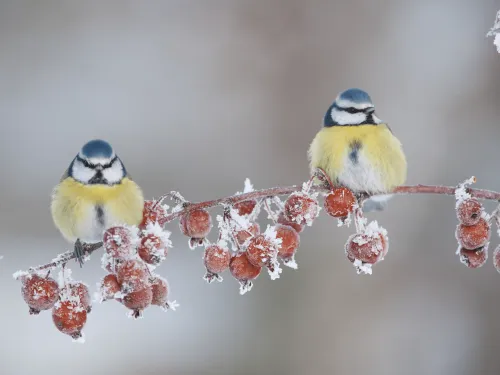
Create a wilder garden this winter
Wilder Gardens Officer, Ellen Tout, talks about her favourite parts of the winter garden and what you can do to make your space a sanctuary for wildlife.
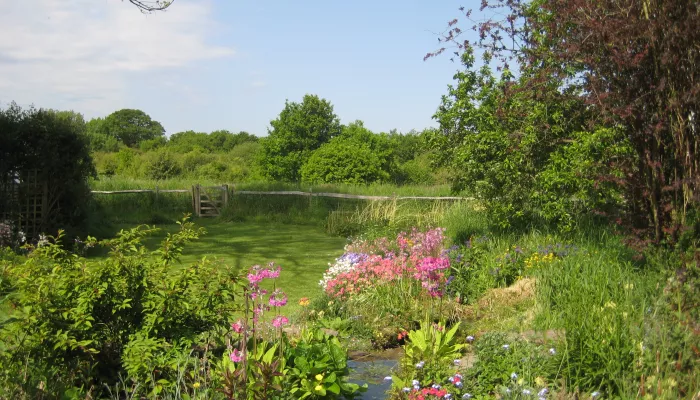
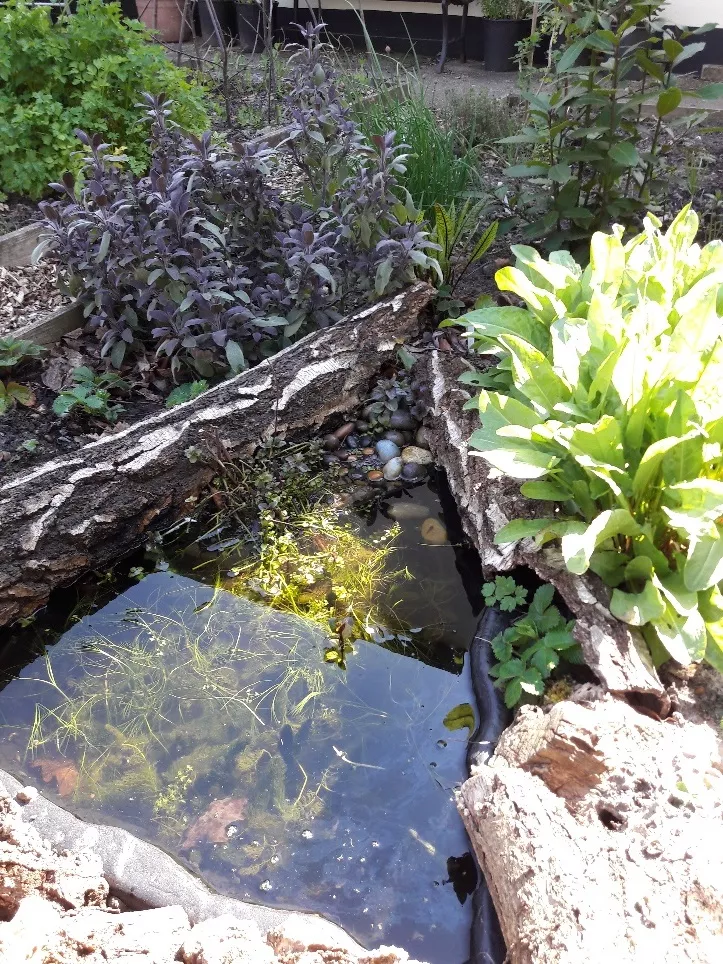
Locating a pond in the vegetable garden brings the frogs where they are needed ©Val Rea
If we try to remove an element from the web of life we will negatively affect others. Take wasps for example: Seirian Sumner (University College London) has calculated that one wasp nest will need 250,000 greenfly to feed to the larvae in one summer, so are wasps pests or the gardener’s friend?
If we manage to kill all the slugs and snails in our garden, what will the song thrushes, hedgehogs and frogs feed on? The blackbirds and blackcaps which eat my blueberries also eat the caterpillars and greenfly that feed on my other plants.
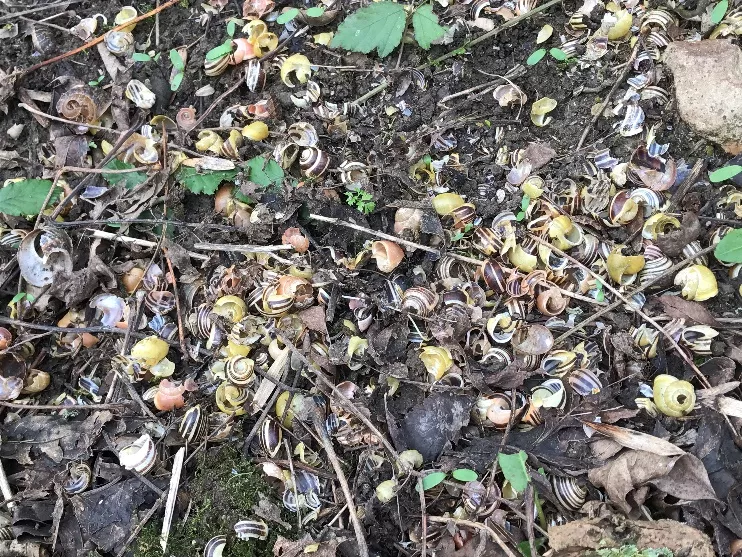
Snail shells on a thrush’s ‘anvil’ ©Peter Brook
One thing we can do is encourage natural predators and recognise that nothing is simply a pest. You might also try barrier methods, such as copper tape or fleece collars to limit slug damage or enviromesh netting to stop butterflies laying eggs on your brassicas. I put my spare cabbage plants in a large pot outside the netting so that the butterflies can still lay their eggs and complete their life cycle.
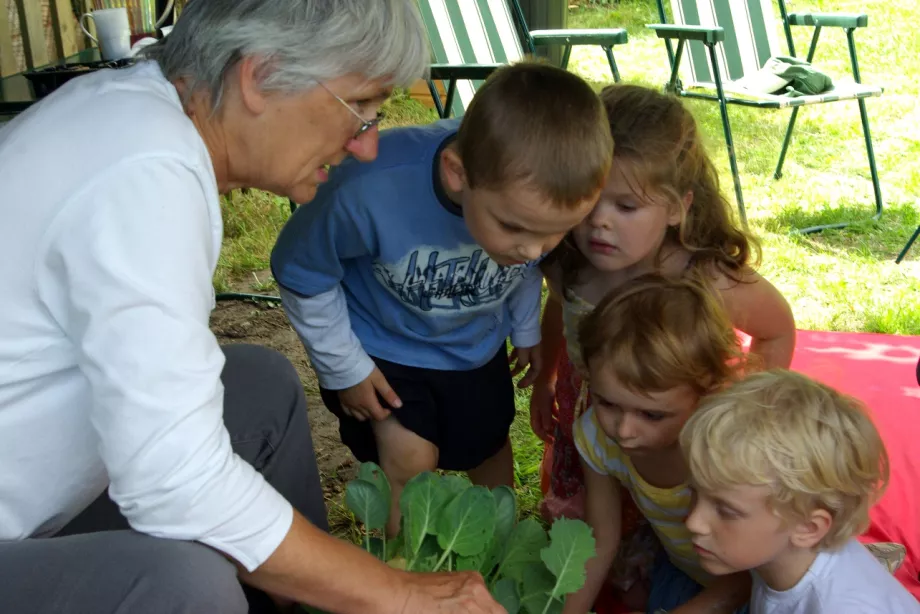
Observing the life cycle of the butterfly on spare brassicas ©Emily Halton
Many gardeners swear by companion planting in which one plant protects another from insect damage: in my own greenhouse I find tagetes (marigolds) keep whitefly from my tomato plants.
'We need to be trying to move away from blitzing our garden plants with pesticides of any type, including when they’re being grown and when we’re using them in our gardens. People shouldn’t be buying pesticides to use in their gardens; there’s no need at all... you can [garden] perfectly well without any pesticides, and that’s exactly what I do. I have a big garden full of fruit and veg and flowers that looks fantastic and I don’t use any insecticides at all, and I’ve not used herbicides for the last few years.’
Find out more about ways in which you can make your garden insect and wildlife friendly. Also don't forget to:
Claim your FREE Action for Insects guide and start to make a difference today
In a later blog we will talk about coping with slugs and snails which even wildlife enthusiasts find hard to love even though they are such an important part of the food chain. We will share Wild About Gardens Advisors’ tips on gardening without slug pellets.
Kent Wildlife Trust’s Wild about Gardens scheme is offering advice by telephone this year. You can enter your garden into the scheme online and our trained Wild about Garden volunteers will do their best to answer your questions.

Wilder Gardens Officer, Ellen Tout, talks about her favourite parts of the winter garden and what you can do to make your space a sanctuary for wildlife.
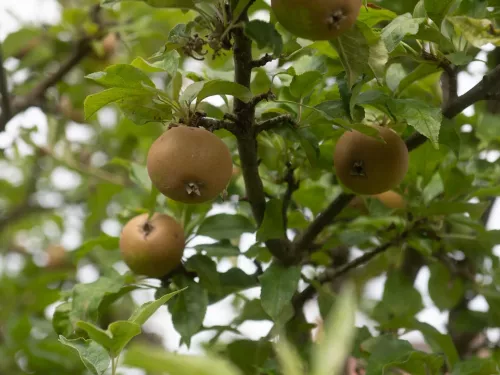
Typically, most gardeners and farmers grow annual vegetable crops. But perennial fruit and vegetables, which grow and produce food for many years, are becoming increasingly popular. Learn why...
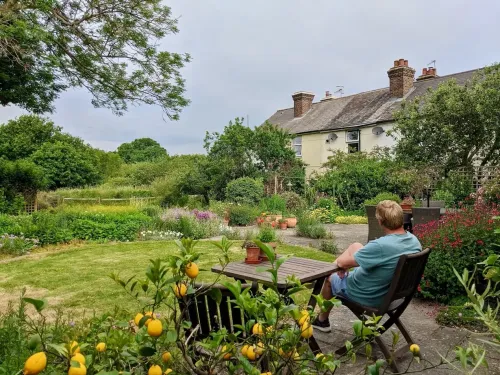
Volunteer Wild About Gardens Advisor Penny Brook takes us on a journey through her garden to share how they create a flower-filled haven for both people to relax and wildlife to flourish.